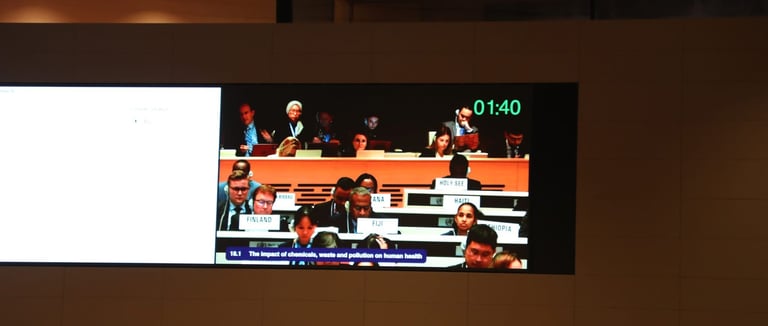Fiji Delivers Joint Statement on Nuclear War and Public Health at World Health Assembly
FIJI NEWS


Fiji’s Assistant Minister for Health and Medical Services, Hon. Penioni Ravunawa, delivered a powerful joint ministerial statement today at 3:00pm (Geneva time) during the 78th Session of the World Health Assembly, addressing the impact of nuclear war on public health.
Speaking on behalf of the resolution’s co-sponsors—comprising over 35 nations including Austria, Brazil, Indonesia, Mexico, South Africa, New Zealand, and several Pacific Island countries—Hon. Ravunawa highlighted the urgent need to revisit and update landmark WHO studies from the 1980s and 1990s on the health consequences of nuclear warfare.
“It has now been more than thirty years since a comprehensive report on the health effects of nuclear weapons and war was last conducted,” Hon. Ravunawa said. “Since then, science, public health, and the global risk environment have all evolved significantly.”
He emphasized the need to integrate modern scientific insights to ensure that Member States have access to the most current evidence as they address global threats.
“Nuclear war would represent a catastrophe of unprecedented scale for human health,” he stated. “Only the WHO holds the global mandate to lead this critical work.”
Quoting the WHO Constitution, Hon. Ravunawa reminded delegates that “the health of all peoples is fundamental to the achievement of peace and security and is dependent upon the fullest cooperation of individuals and States.”
He concluded with a strong call for unity and action:
“We sincerely hope this Assembly will adopt the resolution by consensus, reaffirming the WHO’s essential role in protecting the health of all peoples.”